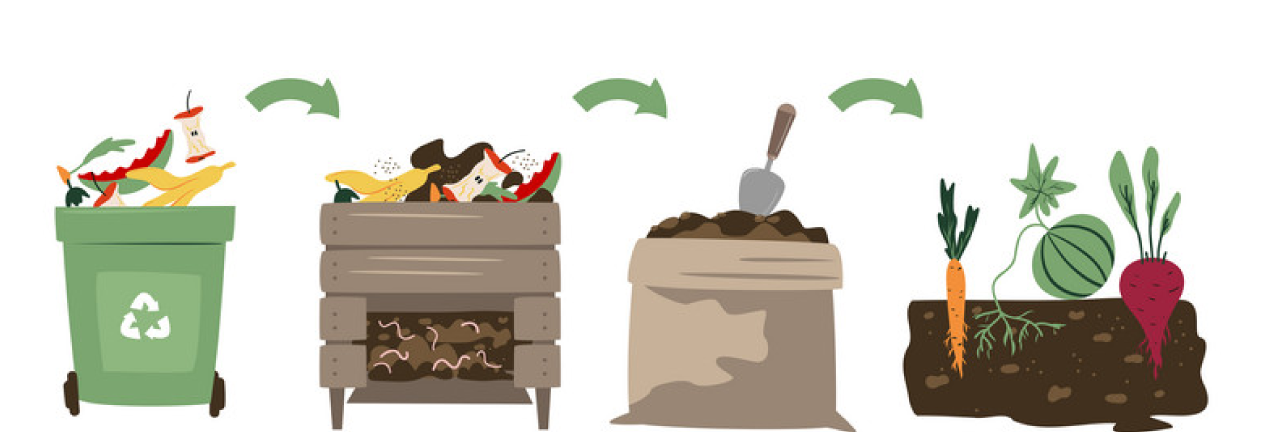Compost and Mulch
Compost
California is reducing a significant amount of organic waste going to landfills by instead composting organic material into a nutrient-rich soil amendment that helps plants grow.
The controlled composting process uses water, air, and high temperatures to help organic material break down with less climate-heating methane emissions.
Organic material composted includes:
- Leaves
- Straw
- Grass
- Vegetable Scraps
Mulch
Mulch is ground, organic material like:
- Leaves
- Tree Bark
- Wood Chips
Mulch applied over soil can:
- Control weeds.
- Retain moisture.
- Prevent erosion.
- Buffer temperature extremes.
Mulch breaks down over time and can add nutrients to the soil.

Small-scale on-site composting
- Reduces costs to haul organics to landfills.
- It is usually exempt from solid waste regulations.
Large-scale compost facilities
- Handle more material.
- Produce a more consistent compost product.
- Must comply with regulations and permitting standards.
Consult current composting regulations and contact your Local Enforcement Agency for local permit requirements before starting a compost project in California.
Benefits of Compost and Mulch Use
In Agriculture
Compost
- Improves plant growth and health.
- Provides plant nutrients in a stable organic form.
- Increases how deep plant roots grow.
- Reduces erosion.
- Conserves water by keeping moisture in soil.
Mulch
- Reduces weed germination.
- Keeps moisture in soil.
- Moderates soil temperature.
For Finances
- Compost and mulch treatments cut costs by:
- Saving water and energy.
- Reduce the use of synthetic fertilizers and pesticides.
Sustainable Landscaping
- Grows healthier plants.
- Saves water.
- Supports butterflies, bees, birds, and other pollinators.
How to Get Compost and Mulch
- CalRecycle’s SWIS database search tool – look for permitted compost facilities.
- Check the map of composters
- Compost suitable for organic production in California must be registered as an Organic Input Material with the California Department of Food and Agriculture (CDFA) and may use the CDFA Organic logo.
- Products that claim nutrient values must have a CDFA fertilizer label.
- The U.S. Composting Council’s Seal of Testing Assurance is a voluntary quality-control protocol.
- Contact local arbor companies to have mulched from freshly-cut trees delivered for free.
Compost is not ready to use if it:
- Steams or is much warmer than the air.
- Has a strong ammonia or other unpleasant scent.
- Has visible plant materials or food.
